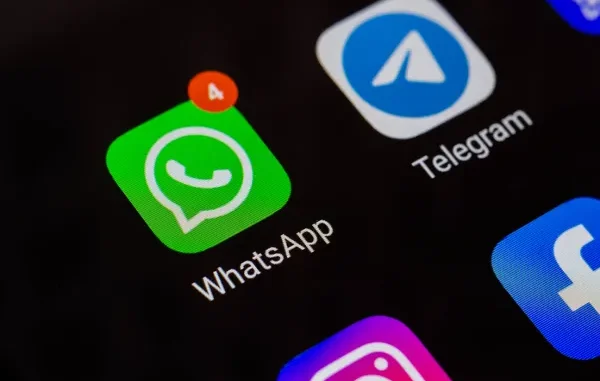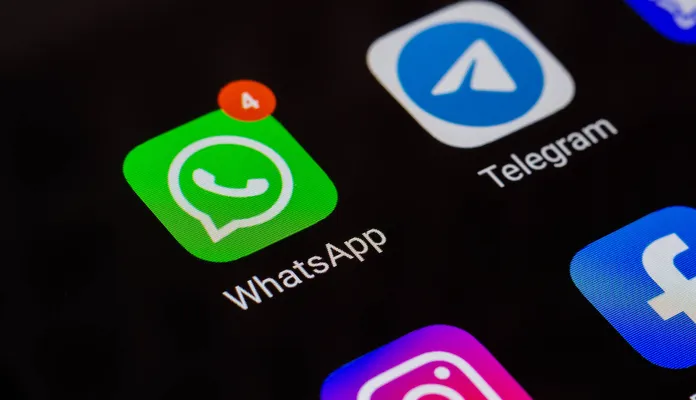

But which one without a doubt merits the crown? In this certain contrast, we’ll explore every characteristic, from privacy to overall performance, to help you determine which app is satisfactory and suitable in your lifestyle and conversation desires.
Introduction: The Battle of Modern Messaging Apps
The Evolution of Digital Communication
The world of messaging has converted from simple SMS to characteristic-packed chat applications that guide the entirety from video calls to file sharing. In the early 2000s, texting changed into limited, gradual, and often high-priced. Fast forward to these days messaging apps like WhatsApp and Telegram中文版 have revolutionized verbal exchange, providing immediately, global, and unfastened connections.
But these apps aren’t just tools; they’ve turned out to be communities. People use them to paint, examine, proportionate news, and even build agencies. The comfort of immediate delivery, multimedia sharing, and stop-to-quit encryption has made them integral in our daily workouts.
Why Telegram and WhatsApp Dominate the Market
Telegram, however, has grown exponentially, surpassing 1 billion users, a way to its consciousness on privateness, flexibility, and innovation.
Their rivalry is more than just about functions, it’s approximately philosophy. WhatsApp pursuits for simplicity and widely wide-spread reach, even as Telegram emphasizes freedom, customization, and privateness. The query is: which method genuinely blessings users the maximum?
Overview of WhatsApp
A Brief History of WhatsApp
Founded in 2009 with the aid of the usage of Brian Acton and Jan Koum, WhatsApp began as an easy app that allows users percentage fame updates. Its mission becomes straightforward: to take away the cost and barriers of SMS. Over time, it advanced right into a comprehensive messaging tool with textual content, voice, and video abilities.
In 2014, Facebook (now Meta) received WhatsApp for $19 billion, marking one in all the largest acquisitions in tech history. Since then, the platform has passed through main alterations introducing voice notes, WhatsApp Web, cease-to-cease encryption, and enterprise integration.
Despite a few grievances over privacy worries and Meta’s data guidelines, WhatsApp’s ease of use, international adoption, and reliability have saved it at the forefront of messaging worldwide.
WhatsApp’s Core Features and Functionality
WhatsApp’s achievement lies in its simplicity. Anyone can use it without technical information. Here are its standout functions:
- End-to-End Encryption: All chats, calls, and media are included in order that only sender and receiver can get proper access to them.
- Voice and Video Calls: High-superb calls, even on weak connections.
- Status Feature: Similar to Instagram Stories, lets in customers to submit 24-hour updates.
- Media Sharing: Send pics, films, documents, and location in actual time.
- Group Chats: Create companies of up to 1024 contributors.
- WhatsApp Business: Designed for small and huge firms to connect with clients directly.
Its minimalist layout guarantees users’ consciousness on conversations in place of cluttered menus or ads. That’s why WhatsApp stays a default desire for billions.
Overview of Telegram
How Telegram Came to Be
Telegram was launched in 2013 by the means of Nikolai and Pavel Durov, the founders of VK (Russia’s largest social community). The concept changed into simple: to create a messaging app that was speedy, secure, and unbiased of corporate manipulation. Telegram’s infrastructure changed into cloud generation, making sure lightning-fast message transport and seamless tool synchronization.
Over the years, Telegram has evolved into greater than a talk app; it’s a hub for communities, developers, and groups. With functions like channels, bots, and public businesses, Telegram has turn out to be a hybrid of a social platform and a communique tool.
Telegram’s Unique Selling Points
Here are its defining features:
- Cloud-Based Messaging: Access messages instantly from a couple of devices.
- Unlimited Storage: All chats and media are stored inside the cloud, liberating the tool area.
- Massive Groups and Channels: Supports corporations with as much as two hundred,000 participants and broadcast channels with limitless subscribers.
- Bots and Automation: Custom bots beautify productivity and enjoyment.
- Customization Options: Themes, chat folders, lively backgrounds, and stickers.
- Secret Chats: End-to-stop encryption for private conversations that leave no trace on servers.
Telegram appeals to customers who price manage, flexibility, and innovation. It’s particularly famous among professionals, developers, and privateness-conscious people.
Privacy and Security: Telegram vs WhatsApp
WhatsApp’s End-to-End Encryption Explained
Privacy is a first-rate subject in these days’s digital age, and WhatsApp’s biggest selling point is its give up-to-cease encryption (E2EE). Introduced in 2016, it guarantees that nobody now, not even Meta can examine your messages or pay attention for your calls. Each message is locked with a unique encryption key that changes for each verbal exchange.
However, whatsapp网页版登入 nonetheless collects metadata like who you touch and when which some privacy advocates criticize. Additionally, its connection to Meta raises worries approximately records sharing throughout systems like Facebook and Instagram.
Telegram’s Secret Chats and Cloud Encryption
Telegram takes a slightly special method. Regular chats are encrypted inside the cloud (server-patron encryption), while Secret Chats use give up-to-quit encryption for max privacy. Secret Chats are tool-precise, self-destructing, and no longer saved on any server.
Moreover, Telegram doesn’t share consumer facts with governments or advertisers. The founders have again and again refused to sell consumer facts, reinforcing its dedication to personal privacy.
- Which App Offers Better User Privacy?
- The winner here depends for your preference:
- If you use end-to-end encryption via default, WhatsApp is more honest.
- If you decide upon control, transparency, and anonymity, Telegram takes the lead.
Telegram’s optionally available encryption model would possibly confuse some users, but it offers more privacy flexibility than WhatsApp’s all-or-nothing approach.
User Interface and Experience Comparison
WhatsApp’s Familiar and Simple UI
One purpose for WhatsApp’s massive recognition is its intuitive interface. From grandparents to tech-savvy teens, all people find it smooth to navigate. The inexperienced-and-white design is minimalistic, decreasing distractions. Chats, calls, and settings are well organized into tabs.
The simplicity makes it approachable, however it additionally limits customization. Users can’t personalize a great deal past wallpapers and notification tones. WhatsApp specializes in functionality in preference to aesthetics.
Telegram’s Customization and User Freedom
Telegram, in contrast, gives users whole creative control. You can change subject matters, create folders, use animated emojis, or set gradient backgrounds. The interface is glossy, cutting-edge, and visually dynamic.
Beyond aesthetics, Telegram’s UI design helps multitasking. You can pin limitless chats, control folders for paintings or private existence, or even use usernames in place of smartphone numbers, a big privacy plus.
When it involves user freedom and personalization, Telegram definitely outshines WhatsApp.






Leave a Reply